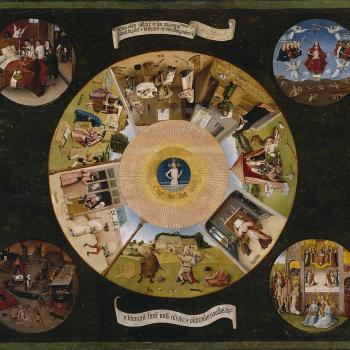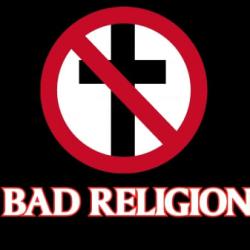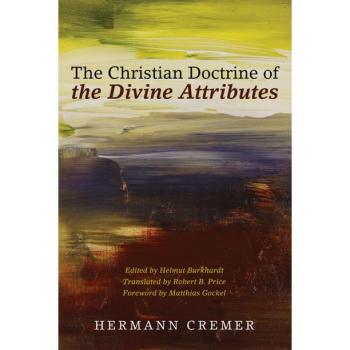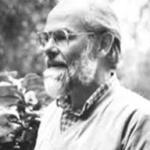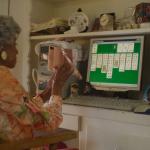Largely Ignored Forms of Oppression
For many years now I have been a rare evangelical advocate of liberation theologies–which does not mean an uncritical advocate. The very first piece I ever had published was a review of a book about liberation theology. That was in (I think) Eternity magazine (now defunct) in the mid 1970s. While in seminary I took a course in liberation theology and was captivated by its concerns while remaining cautiously critical of some of its methods and conclusions.
I think one thing that inclined me toward liberation theology was growing up (part of my childhood) in poverty. I am not seeking sympathy here; I will just say that for a few years I lived in a kind of foster home in the poorest part of town. I believe some of my lifelong health issues have stemmed from being malnourished there. I came down with rheumatic fever at age 10 because my parents could not afford the penicillin to cure my strep throat. (The doctor’s visit was free; the medicine was not. Go figure.) I ended up in the hospital and at home bedridden for a long time.
I become very angry when people romanticize poverty. There’s nothing romantic or sweet or fun about it. I have heard people say of extremely poor children that at least they are not victims of American consumerism, that somehow they are better off than children of wealthy parents. Real poverty is harmful–even if its victims seem happy. Even as a very poor child I had fun; that’s not the issue. The issues are hunger, malnourishment, lack of adequate medical care, etc.
I also grew up, part of my youth, in South Dakota and in high school took an elective course on South Dakota history that focused much on the plight of Native Americans, America’s indigenous people, especially the Lakota tribes. Much of South Dakota’s land is Indian reservations and, while I was in high school, the second Wounded Knee event took place. Then, during the trial of the American Indian Movement leaders, there was a riot at the county courthouse in the town where I lived. I had great sympathy for the plight of the American Indians and came to believe they were among the most oppressed people in the world. We, the United States, and our colonial ancestors, attempted genocide against them and almost succeeded. We still have not made matters right with them. When gold was discovered in South Dakota’s Black Hills we abrogated a treaty that gave that region to the Lakota people and sent in General Custer and his troops to occupy it and protect white prospectors and others who flooded into the Black Hills. We have never made that right with the Lakotas.
White people–especially in that Upper Midwest region of the United States–like to talk about how the Native Americans slaughtered men, women and children in terrible massacres. True, that happened. But they don’t like to remember, or be reminded about, the massacres perpetrated against the Native Americans by white people.
Without excusing the Native American killings I remind myself of what we would do if we were invaded by aliens from another world. That is how our white ancestor must have seemed to America’s indigenous peoples.
Last evening I happened to watch a documentary about the Pine Ridge Indian Reservation in South Dakota. It has no gambling casino and its unemployment rate is 89%. Childhood suicide is not uncommon; children as young as 10 and 11 have committed suicide. When a tribal elder was asked why he said “hopelessness.”
When I was growing up in South Dakota I knew many white people who considered Native Americans less than human. So long as they stayed on their reservations they were ignored. When I was a teenager in the 1970s Native Americans who came off the reservation and into the towns and cities were routinely taken into custody by law enforcement and forcibly returned to the reservation.
I don’t pretend to know all about or fully understand all the complexities of the plights of America’s indigenous peoples, but I do know they are largely ignored and neglected when people talk about civil rights and justice for minorities and oppressed people among us. One excuse for such neglect is “They have their gambling casinos and are laughing all the way to the bank.” Another is that their gambling casinos are “revenge for Custer,” etc. Well, many Indian reservations, especially in South Dakota, have no gambling casinos that I know about. (My wife went on a mission trip to Pine Ridge and saw none; the documentary I watched last evening showed none.)
Child suicide. Why? Ten and eleven year old children killing themselves. Why? Hopelessness. Many would blame the Native Americans themselves; I do not. What we did to them is as bad as slavery and yet, by and large, we continue to ignore them. Ignoring an oppressed minority is a form of oppression.
I suspect my second largely ignored type of oppression will cause more controversy, but I am convinced it is rampant and almost totally ignored.
Many boys and young men have been and are victims of sexual humiliation and even rape and yet American society as a whole shows little real concern about them. One reason is that most boys and men who are molested and raped refuse to speak about it; it is the most shameful thing that can happen to a boy or young man. Yes, I know it is also shameful to girls and young women, but our culture is waking up to that form of sexual oppression and many young women are speaking out about their molestations and rapes. I am glad for that.
What makes me sad is how any men I know who have shared with me their stories of being raped as boys. Often the rape takes a different form called “sexual humiliation.” One man I know was raped when he was a boy by an older male using a garden hose. The man refuses to call it rape. I think that is because calling it rape is too humiliating. Over the years I have heard and read numerous stories of boys subjected to “sexual humiliation” by older boys and men; it is usually considered some kind of “right of passage.” Often the claim is made that it was voluntary: “I didn’t say no.” This is especially the case with regard to fraternity hazing involving sexual humiliation–a rampant but largely ignored phenomenon. Eighteen year old boys/young men are taken to a place from which they cannot easily escape and subjected to sexual humiliation as part of their “pledging” process. In my opinion, the fact that they did not say “no” does not make it voluntary.
I have personally known of cases of college/university freshman who committed suicide partly, at least, due to such sexual humiliation at the hands of fraternity “brothers.” The truth never comes out publically because the family knows the deceased son, brother, would not want that.
I think that the percentage of men who were raped in some form or fashion as boys and teenagers is much higher than most people think. In fact, I think it is very high but I wouldn’t venture a guess at how high.
I recently saw a public service announcement against rape claiming that one in every five females but only one in every twenty males suffers some form of sexual assault during their lifetimes. I contacted the person who made the claim and she could not answer my question: How do you know only one in twenty males….? The majority of males never speak of what was done to them and would, if asked, deny it constituted “sexual assault.”
I recently watched the movie “Spotlight” about the sexual abuse of mostly boys by Catholic priests in and around Boston in the 1970s through the 1990s. But the movie was not about the victims; it was about the journalists who uncovered the phenomenon and about the officials who attempted to cover it up. But at least it made one thing about the male victims clear–most of them did not want to speak about what happened to them.
I believe the percentage of boys and young men who suffer some form of sexual assault is much higher than one in twenty and I suspect that statistic is only stated in order to make it appear that females are the only victims of sexual violence we, as a society, should be concerned about.




